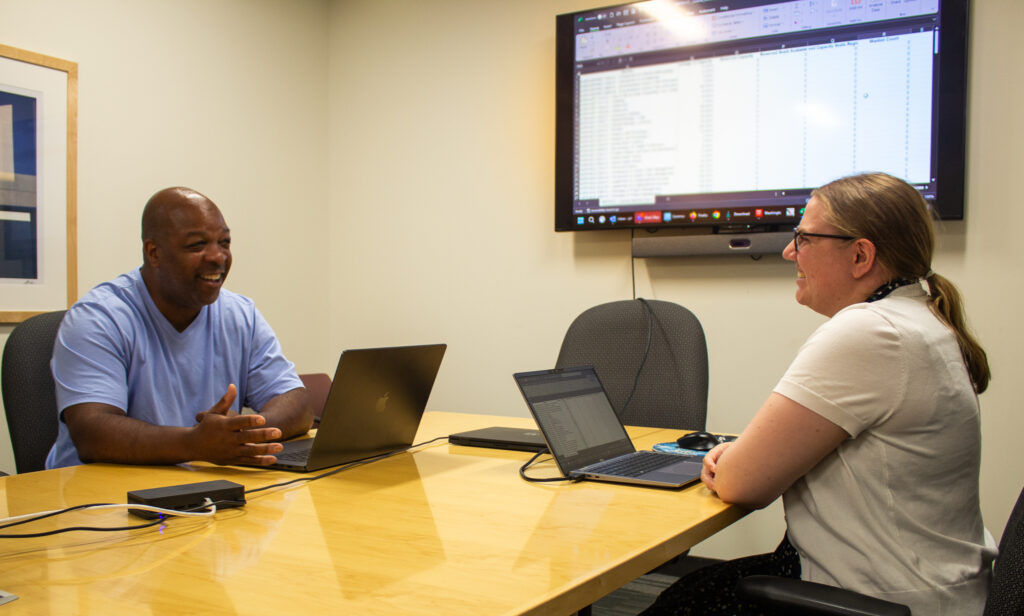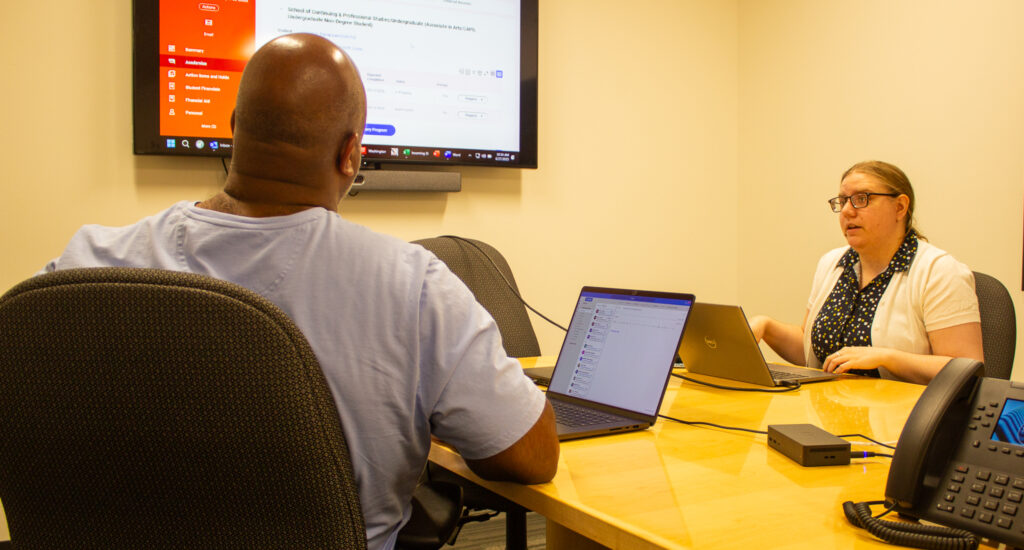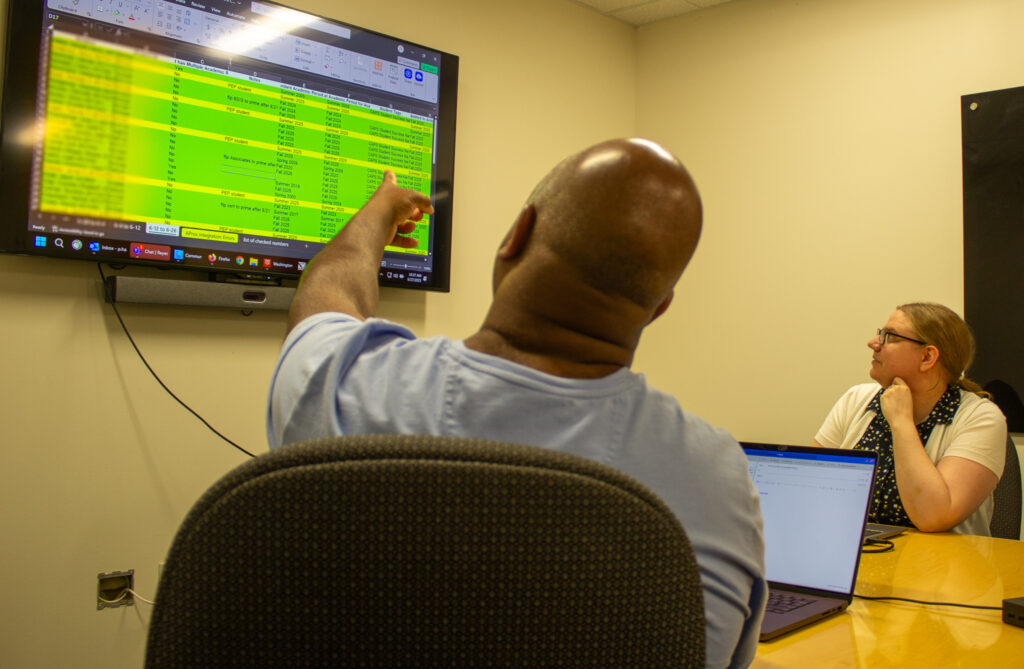Some students at WashU Continuing & Professional Studies (CAPS) may never meet Assistant Registrar Pam Hayek, but her work shapes nearly every part of their academic journey—from admission to graduation. Whether she’s verifying records, assigning advisors or tracking enrollments, Hayek ensures that the systems behind every course are accurate, up to date and ready to support student success.
“The work Pam does might not always be visible, but it supports everything we do,” said Dean Sean Armstrong during his quarterly Dean’s Day at Your Desk, a CAPS initiative that offers an up-close look at the essential work staff members perform behind the scenes. “Her work keeps the school functioning smoothly behind the scenes.”

Hayek’s meticulous work may not always be seen by students, but it’s the structural support – like an architect – that helps them reach their goal to graduate.
Her day begins with a detailed check of recently admitted students, reviewing academic records to ensure that relevant documents transferred correctly from the admissions platform into Workday.
“I run a report to see who’s matriculated and then manually check each one,” Hayek said. “It’s time-consuming, but it catches things like duplicate records or, occasionally, a prank account.” She also manually assigns each new student to their student success navigator.
“Eventually, it should be automatic, but for now, I’m making sure no one falls through the cracks,” she said.
Next, Hayek updates programs of study and advisor cohorts, ensuring each student is aligned with the right academic path and support team.
“Everything in Workday is date-based, so I keep a spreadsheet with notes and reminders for when to switch students from nondegree to degree programs,” Hayek explained. “It’s all about keeping the data clean.”
She then pivots to managing registrations and enrollments, pulling real-time enrollment reports, helping process administrative registrations and reviewing waitlist activity.
“I do a lot of administrative registrations, and every case can be a little different,” Hayek said. “Sometimes it’s a quick fix, other times it takes digging into registration access, prerequisites or system restrictions to get a student where they need to be.”
Managing transfer credits is also a significant part of Hayek’s job. She verifies transcripts, manually builds course equivalencies and ensures accurate grade recording in both Workday and Student Information System (SIS)—a dual-entry process that’s in place until the university fully sunsets its legacy system.
“Eventually, the process will be automated once I’m confident in the data,” she said. “But for now, I double-check everything.”
Reporting is another major part of Hayek’s role—a behind-the-scenes task that supports nearly every department at CAPS. From coaching and finance to communications and leadership, her data helps guide planning and decision-making. She also prepares recurring reports, like the ACTRAC and independent study report that helps determine faculty pay.

“A lot of my job is data checking and confirming accuracy,” she said. “Every day is different. I can have a plan, but things change quickly.”
From maintaining student records to ensuring financial aid eligibility, from discontinuing inactive academic programs to updating program completion dates, Hayek’s work is meticulous, often manual and deeply interdependent with nearly every CAPS team.
“I like the background side of things,” she said. “I still get to interact with students and faculty, but I also get to do the behind-the-scenes work that makes things run.”
At the end of the day, Armstrong reflected on his experience with Hayek’s day. “People come here to go to class—and the whole class thing can’t happen if it’s not recorded legitimately, and that falls on the registrar. It’s the spine that lets the school stand.”
And thanks to Hayek, that spine is strong, flexible and always focused on the details that make academic life possible at CAPS.
